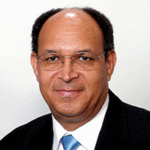Washington politicians do not have to listen to constituents. Virginia politicians stay out of site on off election years, but local county supervisors make decisions that matter to you immediately. They can be convinced by their constituents on how to vote, and you can reach them by phone and actually talk to them, not an aid.
But you have to vote, you have to know the issues, and you have to vote. Supervisors and School Board members are elected every four years so you may want to do a little homework and find out how they stand on the issues.
This year there are not many choices. There is no opposition for Supervisors in Bermuda or Matoaca districts. Voters in the Village News readership area, have a choice only in Dale District.
There is a little more competition in Matoaca and Dale districts for School Board, although Bermuda does not have a voter choice for School Board, while Matoaca and Dale districts both have some competition, tougher completion exissin Dale with possible landslide in Matoaca.
For the next three weeks in the Village News readership area, you can get a feeling about what the candidates stand for; whether they are unchallenged incumbents or knock-down, drag-out competitors. On this and the following page, the same question will be asked of four Supervisors, opposed or not. The same approach is repeated for potential School Board members.
All of the Constitutional offices are uncontested: Circuit Court Clerk, Wendy S. Hughes; Commissioner of Revenue, Joseph A. Horbal; Commonwealth’s Attorney, W. W. “Billy” Davenport; Sheriff, Karl S. Leonard; and Treasurer, Richard A. Cordle.
Four candidates are running for two seats as Soil and Water District Directors: David E. “Dave” Adkins, Carey Lynn Allen, Margie Davis, Rudolph H. “Rudy” Hull.
What is your position on cash proffers (funds that a builder or developer pays for infrastructure costs for each dwelling unit he builds); should proffers remain as they are, be reduced or be paid on sliding scale (differential)?
 CLIFF BICKFORD (DALE)
CLIFF BICKFORD (DALE)
I believe [cash]proffers should be paid on a sliding scale since that is consistent with state code which describes proffers as a voluntary process. Each application should be reviewed case-by-case to determine the impact, both positive & negative, that the proposed project will have on the immediate area/community. Once that impact has been identified then an appropriate level of proffer can be imposed.
JIM HOLLAND (DALE)
 This past June the other four Board members and I voted unanimously to continue the cash-proffer policy, first established 25 years ago. Cash proffers assure that residential growth contributes to the cost of new and expanded capital facilities such as schools, fire stations, libraries necessary to serve new subdivisions. County taxpayers fund the remaining cost as well their on-going operating expenses. Currently, $37 million in proffer funds are included in the capital facility budget (about $7 million annually). Without this revenue, either schools, fire stations, or library projects would have to be dropped or the real estate property tax increased as a funding replacement. I am not willing to jeopardize Chesterfield’s highly regarded County services, Triple A status nor raise taxes. During my next term, though, I intend to evaluate options for lowering the cash proffer. I also would like to examine how further reductions can be used as an incentive to encourage new housing in designated “revitalization areas” and to promote residential mixed use projects with retail/office components.
This past June the other four Board members and I voted unanimously to continue the cash-proffer policy, first established 25 years ago. Cash proffers assure that residential growth contributes to the cost of new and expanded capital facilities such as schools, fire stations, libraries necessary to serve new subdivisions. County taxpayers fund the remaining cost as well their on-going operating expenses. Currently, $37 million in proffer funds are included in the capital facility budget (about $7 million annually). Without this revenue, either schools, fire stations, or library projects would have to be dropped or the real estate property tax increased as a funding replacement. I am not willing to jeopardize Chesterfield’s highly regarded County services, Triple A status nor raise taxes. During my next term, though, I intend to evaluate options for lowering the cash proffer. I also would like to examine how further reductions can be used as an incentive to encourage new housing in designated “revitalization areas” and to promote residential mixed use projects with retail/office components.
 DOROTHY JAECKLE (BERMUDA)
DOROTHY JAECKLE (BERMUDA)
The current proffer system started in the early nineties at a time Chesterfield was experiencing explosive growth countywide. It was one of the tools used to help offset the cost of new infrastructure needed due to new residential growth. Now, 25 years later, the situation has changed. There are pockets of high residential growth creating demands for new infrastructure. There are aging areas of the county with infrastructure in place where new high quality residential development would benefit the area. A proffer is designed to mitigate the impact of development. A straight across the board equal proffer may have been the proper solution in the early nineties but conditions have changed. Impacts of development in 2015 are far more varied. The proffer system needs to be redesigned so they meet the original intent of the proffer.
 STEVE ELSWICK (MATOACA)
STEVE ELSWICK (MATOACA)
Mr. Elswick did not respond to the question.


2 Comments
Where are the other BOS races? There are more contested races for BOS.
Ruth, we only cover Bermuda, Dale and Matoaca Districts.